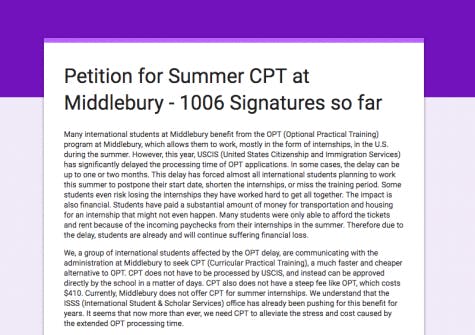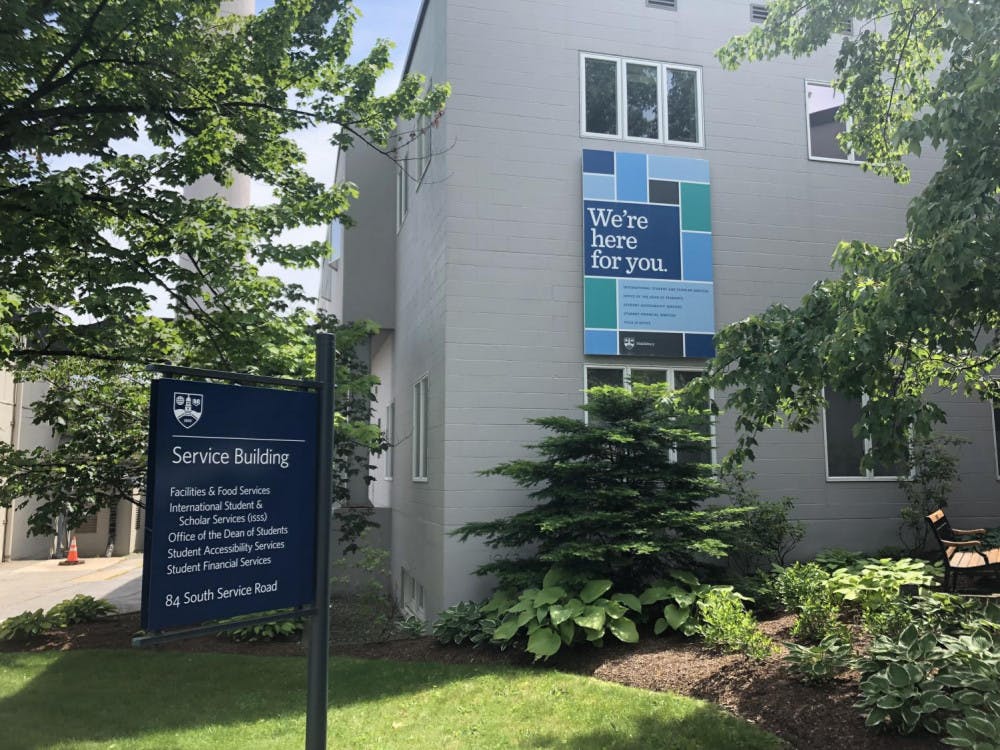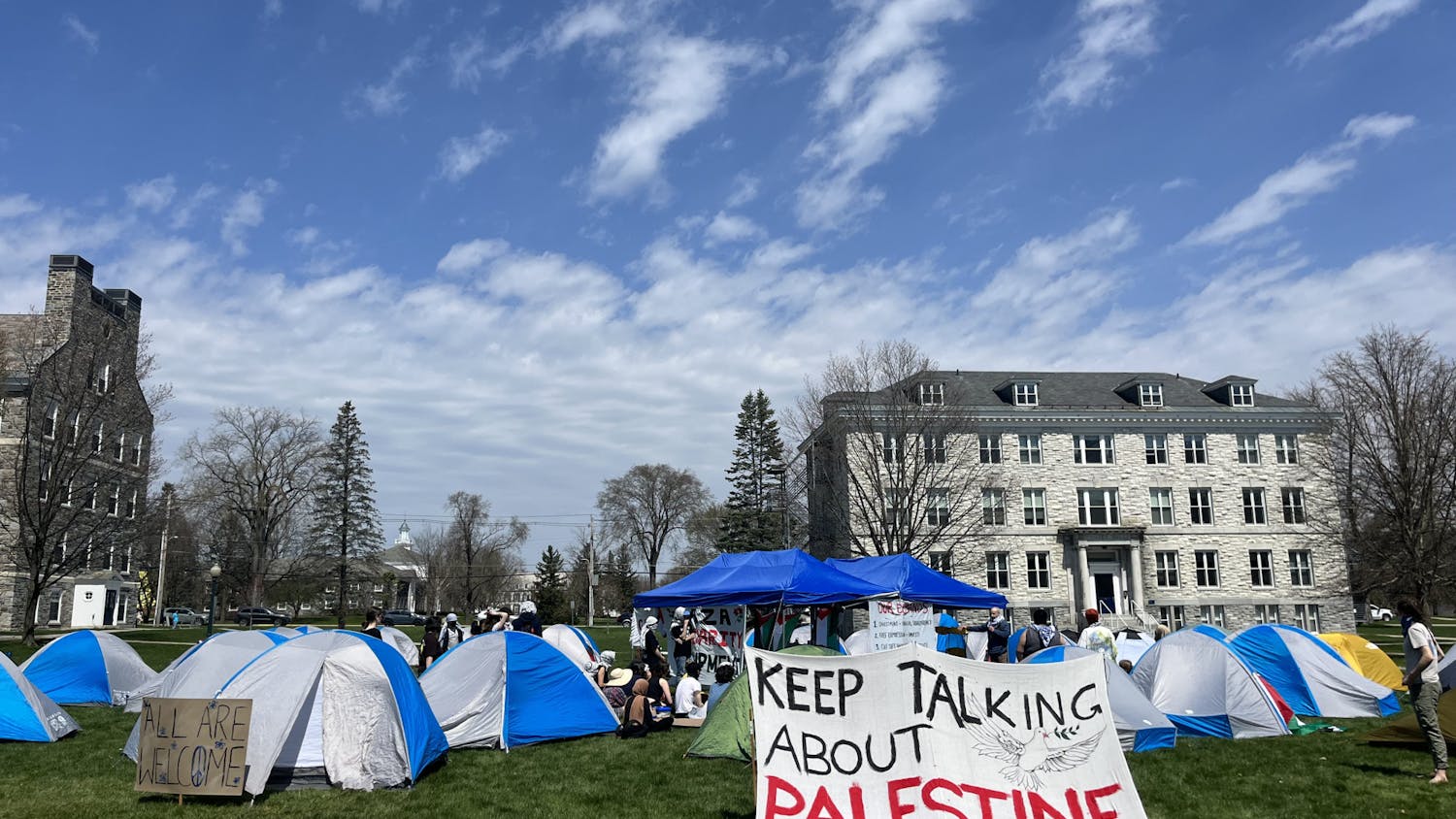The college approved a Curricular Practical Training (CPT) option for international students last week after major delays from United States Citizenship and Immigration Services (USCIS) left international students around the country unable to begin their summer jobs in the States.
CPT, which Middlebury only previously offered to students completing winter term internships, will allow international students to complete summer internships for credit in the States. The credit will not transfer to students’ transcripts, but the option will permit participants to start work despite restricting federal delays.
International students have always needed special permission to stay and work in the U.S. outside the academic school year. Usually, they can do so once they receive approval from the federal government to complete Optional Practical Training (OPT) through their student visas. Previously, this process was guaranteed to take fewer than 90 days, and students were allowed to apply for OPT 90 days or fewer before beginning their internships.
But this year there are delays on the national level, which Citizenship and Immigration Services is attributing to, “a surge in employment authorization requests.” The federal government has also removed the guarantee that processing would take fewer than 90 days. As a result, many international students with internships in the U.S. have not yet been granted legal permission to live or work here, leaving these students in limbo.
“For more or less the past month, this problem has been constantly on my mind, and I was getting increasingly anxious,” said Roger Dai ’20, an international student who was worried he wouldn’t be able to start his job at Bloomberg in New York City until the college announced the CPT option.
Earlier this month, Dai and Elisa Gan ’20, another international student interning in the U.S. this summer, created an online petition that garnered over 1,000 signatures, lobbying for Middlebury to circumvent the federal delays by guaranteeing students’ authorizations to work through CPT.
Solving the problem at Middlebury proved tricky given the college’s policy that summer internships cannot be completed for credit. In order to create a path forward for international students this summer, administrators designed a way for students to apply for CPT through an existing one credit-hour course at the Middlebury Institute of International Studies in Monterey (MIIS).
According to Dean of Faculty Andi Lloyd, this option will provide students who are approved a quarter credit for the summer so that they can continue with their internships without OPT approval.
“That credit will not be transferable to the college, and so students will not earn college graduation credit,” Lloyd said in an email to the Campus. “The solution is thus fully consistent with the college’s current policy on credit for summer internships.”
Vice President of Academic Affairs Jeff Cason clarified that the college also decided to waive their normal practice of not allowing paid internships to count for credit under their new CPT solution because these internships will not count for graduation credit.
Cason also said that the college has not yet decided if this will be a permanent option for students or not.
“We haven’t decided whether this will be the long-term solution going forward; we expect to have a much broader conversation about internships in the coming year,” he said. “This was a solution we could accommodate within our current structures and courses, but we imagine that there might be other solutions as well, and welcome that conversation.”
In the online petition, Gan and Dai laid out some of the benefits of CPT over OPT.
“CPT does not have to be processed by USCIS, and instead can be approved directly by the school in a matter of days,” they wrote. “CPT also does not have a steep fee like OPT, which costs $410.”
According to Gan, CPT also offers international students the chance to work in the U.S. without using up any of the limited 12 months of work that their F-1 visa allows. Through a for-credit program, students can save more of their 12 months of U.S. working time until after they graduate if they chose to stay and work in the states.

Gan, like many other international students, felt the impact of the OPT delay before the college announced a solution.
“I am living without income flow every week during the wait,” she said in an interview before the announcement about CPT.
Gan said that she started her internship this week and has extended her end date to make up for lost time.
Dai also started his job this week. Before good news came from the college, Dai was scrambling to figure out his housing situation. His summer housing in New York was guaranteed through his internship, which meant he could not move in until he started work.
A History of Debate
Debate over CPT is nothing new at Middlebury. In 2014, the faculty discussed and voted on a proposal that would have allowed summer courses, mostly taken off campus, as well as internships that met certain criteria to count for college credit. The proposal ultimately passed after the credit for internships section was removed.
“While there was widespread agreement that internships have educational value, there were differing opinions about whether or not an internship should be treated as equivalent to a course,” Lloyd said, remembering the discussion coming down to a very close vote.
Lloyd added that faculty were not involved in the decision to create a CPT option through MIIS, as the new option does not conflict with existing policy.
“The discussion of credit for internships more broadly, however, is likely to continue in the years to come, as the landscape around the issue has changed somewhat since the faculty last discussed,” she said.
The Student Government Association (SGA) also unanimously passed a resolution supporting a CPT option in the spring of 2018.
Kailash Raj ’19, an international student who sponsored the resolution as a junior senator, said he believes CPT makes Middlebury more accessible to all students.
“If Middlebury's goal is to become inclusive for students of different levels of social economic background, allowing CPT would help achieve that goal,” he said. “It is already hard for international students to receive summer internships compared to those that do not require significant paperwork.”
As a recent graduate, Raj is not eligible for the college’s new CPT program and is instead still waiting to hear back on his OPT request. He hopes to start work in Boston in mid-July.
Gan said she is happy that the college found a solution for this summer, but she stressed that recent USCIS delays represent the many ways it is harder for international students to enter the U.S. job market should they choose to.
“International students do not enter the job market on an equal footing with domestic students. ” she said. “To miss any deadline and link in the process may significantly change one’s future paths. Therefore, the college’s support in lowering any barrier for international students is extremely valuable and necessary.”
College approves CPT, grants international students option to work in U.S.

COURTESY IMAGE
Comments



